|

by Sophie Jane Evans
14 June 2015
from
Dailymail Website
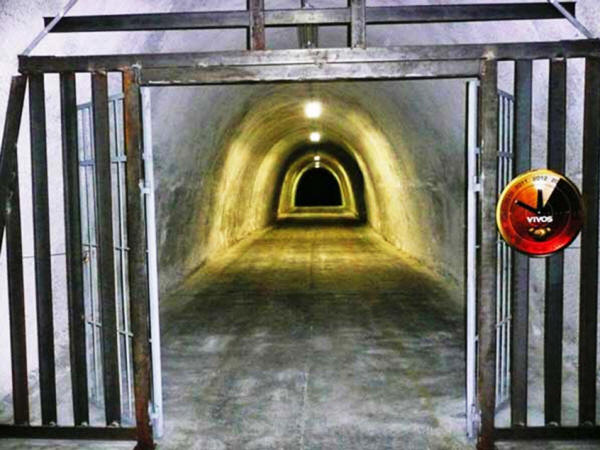
-
Vivos Europa One
shelter, in Rothenstein, Germany, was unveiled by
Vivos founder, Robert Vicinio, on Friday
-
Consists
of a planned survival complex that is comparable to
billionaire's mega-yacht or mansion - but much
bigger
-
Boasts
swimming pools, theaters, gyms, restaurants, custom
apartments, outdoor space and helicopter service
-
But it
can also apparently withstand nuclear blast,
chemical agents, earthquakes, tsunamis, or another
disaster
-
Although
the cost per apartment remains unclear, the property
is valued at $1.1bn (its original value was $225m)
-
Underground shelter is currently in 'turnkey
operational condition'; residents are accepted based
on their 'skills'
California entrepreneur builds
$1billion bunker for
millionaires
in German village in event of
an apocalypse
- and where survivors can live
a year without leaving
It boasts a luxurious array of swimming pools, theaters, gyms,
restaurants, custom apartments and its own helicopter service.
But at the same time, it can apparently withstand a nuclear blast,
chemical agents, earthquakes, tsunamis - and virtually any other
disaster or attack.
These photos show an opulent, invitation-only
underground survival bunker, which
is being dubbed the world's 'ultimate doomsday escape'.
The five-star Vivos Europa One shelter, in the German village
of
Rothenstein, was unveiled by Vivos
founder and CEO, Robert Vicinio, on Friday.
It portrays a planned survival complex that is comparable to a
billionaire's mansion or mega-yacht - but much bigger, and with
'life-saving' capabilities.
Although the cost per apartment remains unclear, the property is
valued at around $1.1billion - meaning it will likely be available
only to the super-rich...
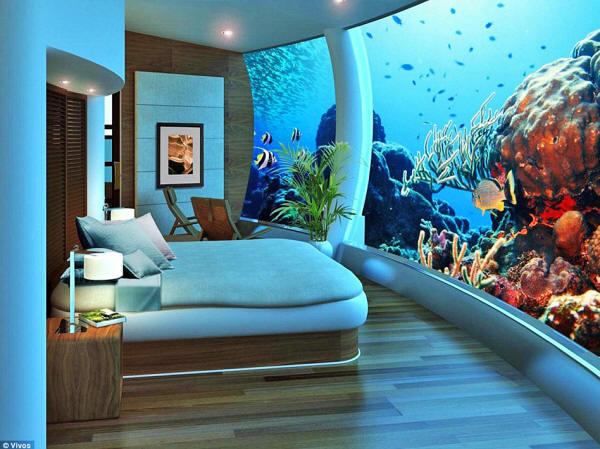
Opulent:
This photos shows a bedroom
in
the Vivos Europa One shelter,
which is being dubbed
the
world's 'ultimate doomsday escape'
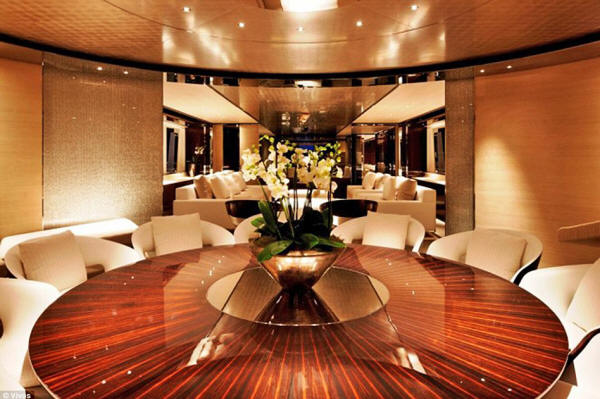
Dining room:
The underground bunker,
in the German village of Rothenstein,
was unveiled by Vivos founder,
Robert Vicinio, on Friday.
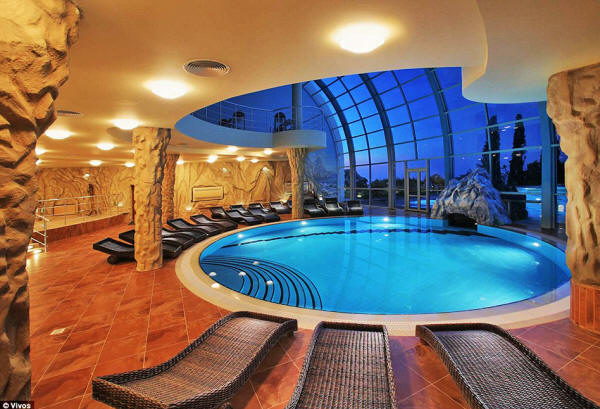
Space for relaxation:
It portrays a planned survival complex
that is comparable to a billionaire's
mega-yacht or mansion - but much
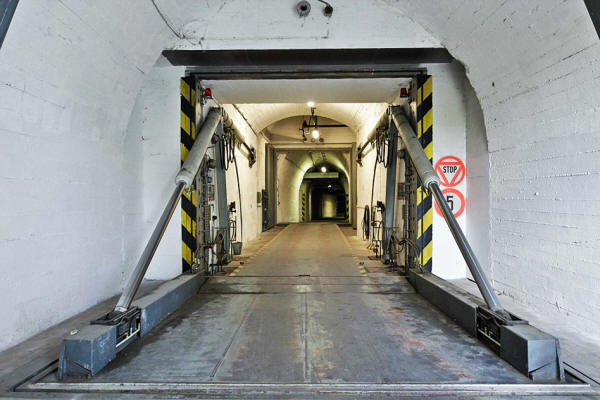
Secure:
The survival bunker can apparently withstand
a nuclear blast, chemical agents, earthquakes, tsunamis
- and virtually any other disaster.
Above, this photo shows a
drive-thru
blast-proof door at the complex,
which will likely be available only to the super-
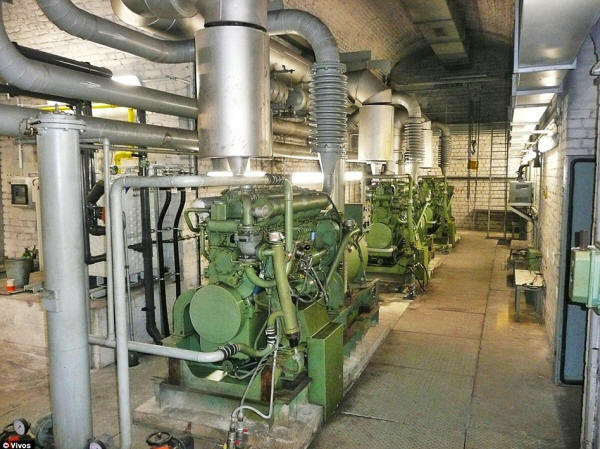
Power:
The luxury shelter was originally built
by the Soviets in the Cold War as a fortress
for military equipment.
Above, its engine
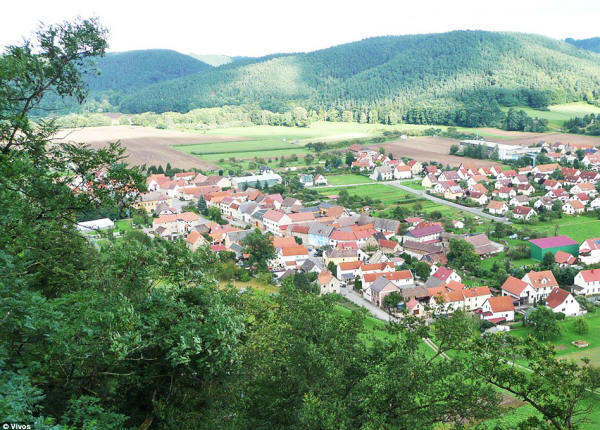
Unlikely location:
With its rolling heels and stunning woodland,
the village of Rothenstein looks like
an unlikely location for the bunker
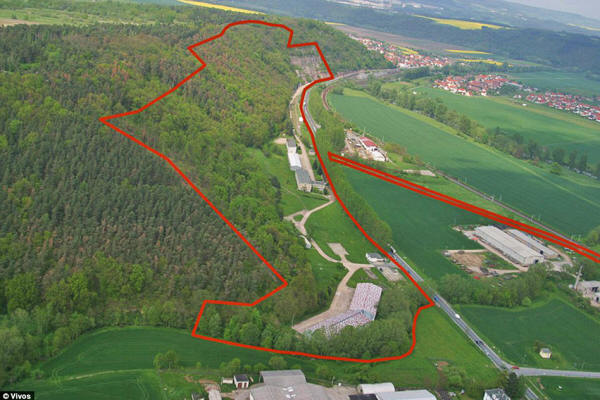
Underground living:
This aerial image shows
the
boundary of the survival bunker,
which is currently in
'turnkey operational condition'

Standard apartment:
This photo depicts 'typical living quarters' in the shelter.
It remains unclear how much each family will have to pay
Each family in the
complex will be provided with a private 2,500-square-foot apartment,
which they can design and build to their own specifications.
They may decide to add a pool, a theater or a deluxe bathroom. They
will also have access to a hospital area, several restaurants and a
bakery.
Other common area amenities will include roadways, a wine cellar,
prayer rooms, classrooms, a television station and a detention
center.
Families will pay a base sum for their apartment, along with their
share of the costs for managing and staffing the complex, and other
costs.
But their expenditure could save their lives, Vivos says, as the
76-acre complex can survive a 'substantial' close-range nuclear
blast or natural disaster.
In addition to its 227,904 square feet (~21,200 m2) of
blast-proof living areas, the bunker also boasts 43,906 square feet
(~4,100 m2) of above-ground space,
Forbes reported.
Underground, it features countless tunnel chambers, each with their
own security system, and numerous sets of blast-proof doors with
airtight seals.
It also has its own,
-
self-contained
water and power generation system
-
climate,
ventilation, air filtration and communication systems
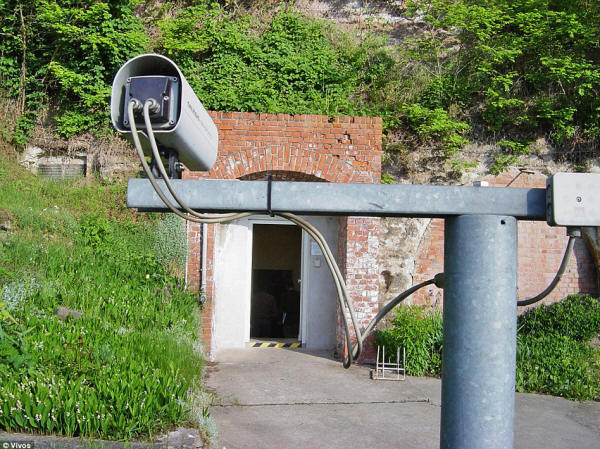
Keeping watch:
Each family in the complex will be provided
with a private 2,500-square-foot apartment.
Above, a personnel entry door
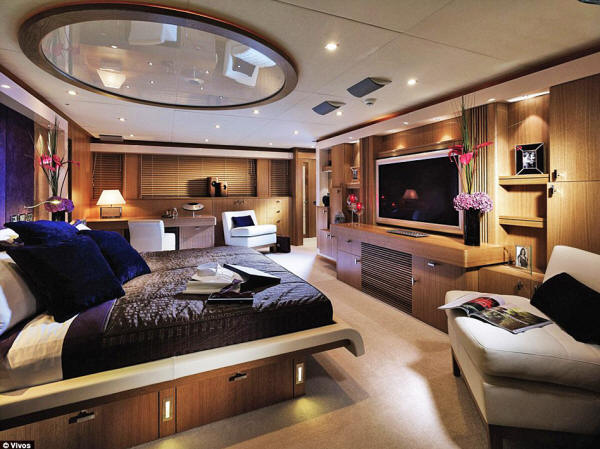
Billionaires' bunker:
They can design and build their apartments
to their own specifications.
They may decide to add a theater (pictured)
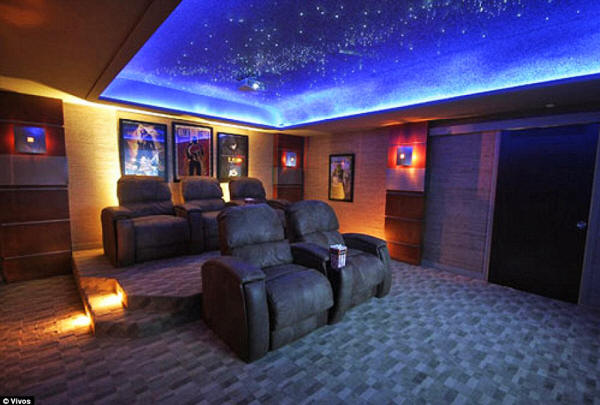
Time to watch a movie:
on the Other common area amenities will include roadways,
a wine cellar and prayer rooms. Above, a theater
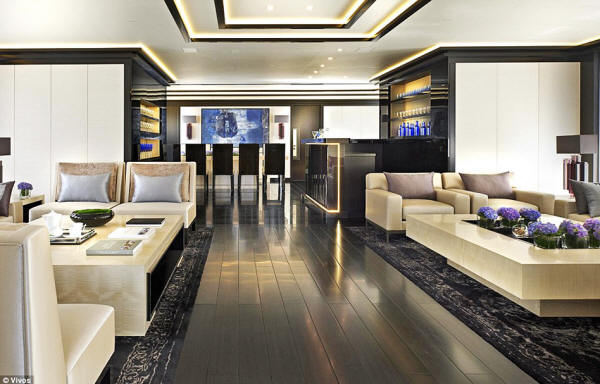
Modern furnishings:
Families will pay a base amount,
along with their share of the ongoing costs
for managing and staffing the complex
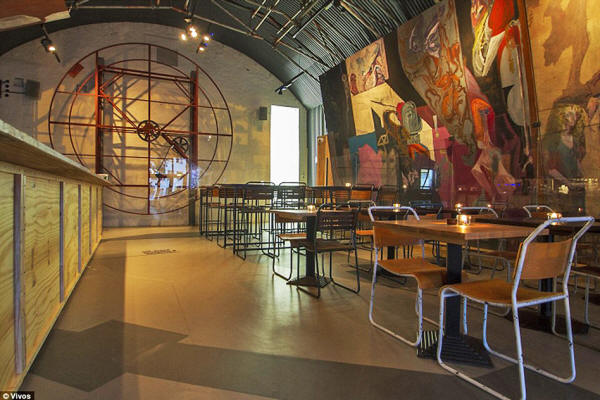
An underground pint:
The bunker in Rothenstein boasts 227,904 square feet
of blast-proof living areas, including this planned pub
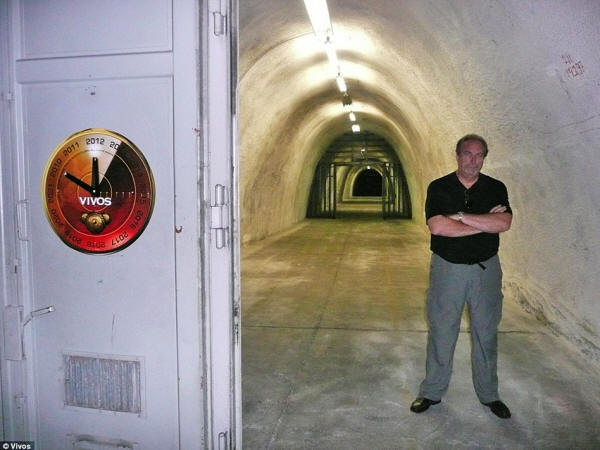
Proud: Vicino (seen in the bunker) told Forbes:
'We are proud to bring this epic project forward
in these increasingly dangerous times'
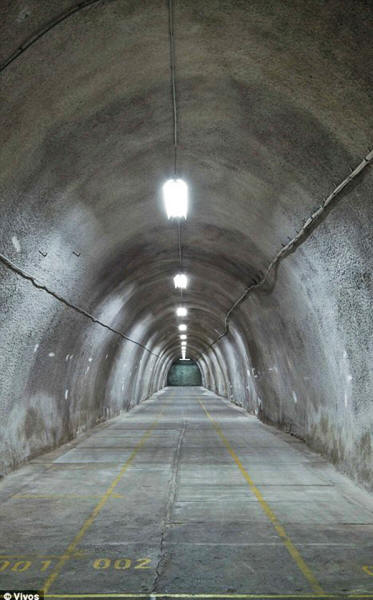 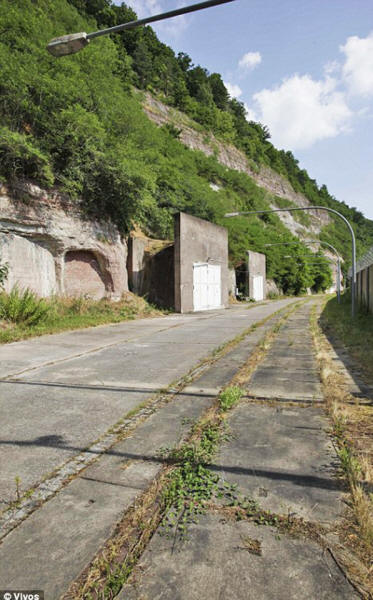
Made of strong material:
These
photos show exterior entrances to the bunker (left),
and a
typical tunnel inside the expensive facility
Speaking to the magazine
on Friday, Vicino said:
'We are proud to
bring this epic project forward in these increasingly dangerous
times.'
Alongside its
catastrophe-proof features, the bunker will include a stock of
zoological species, an artifact and treasure archive and a DNA
vault.
In the event of a disaster, families will fly to nearby airports
before lockdown. They will then be transferred to Vivos Europa One
by Vivos helicopters.
The company will provide protective equipment needed to brave
Rothenstein - which currently sits amid rolling hills and woods -
and the outer world.
The shelter, which was originally built by the Soviets in the Cold
War as a fortress for military gear, is currently in 'turnkey
operational condition'.
It is among a network of
underground survival shelters - including 'economy class' bunkers -
being built by Vivos, which is based in California. .
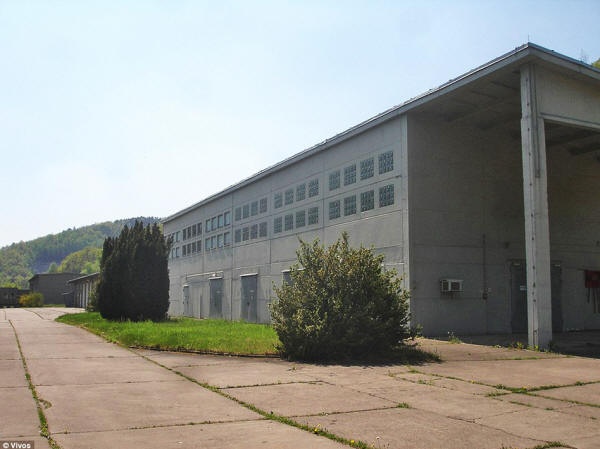
Above-ground space:
The Rothenstein facility also boasts
43,906 square feet of above-ground space.
Above, an outdoor power station
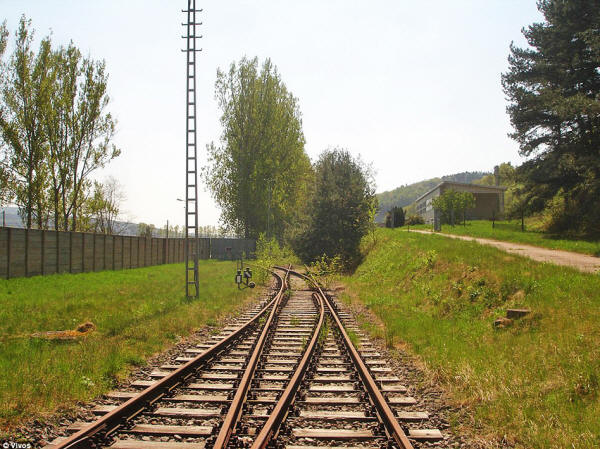
Railway:
Vivos Europa One shelter also features
its
own railway and helicopter service,
which picks up residents from nearby airports
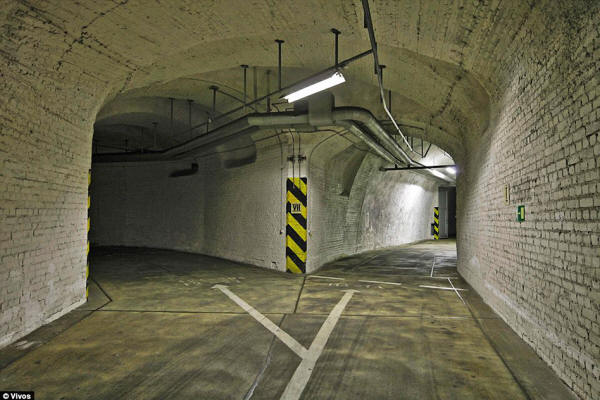
Protected:
Underground, the bunker features countless tunnel chambers,
each with their own security system and blast-proof doors
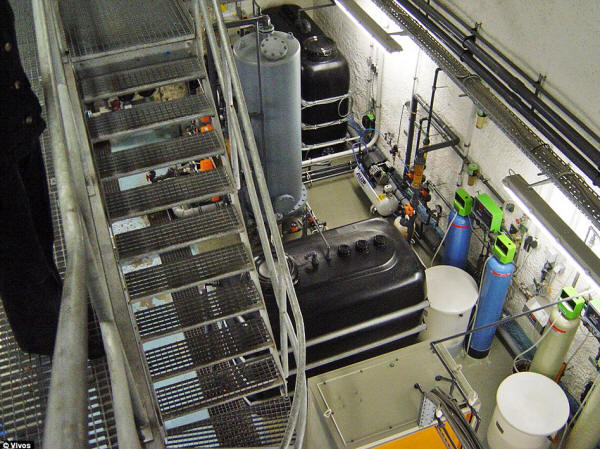
Water treatment plant:
It also has its own self-contained
water and power generation system,
as well as climate and ventilation systems
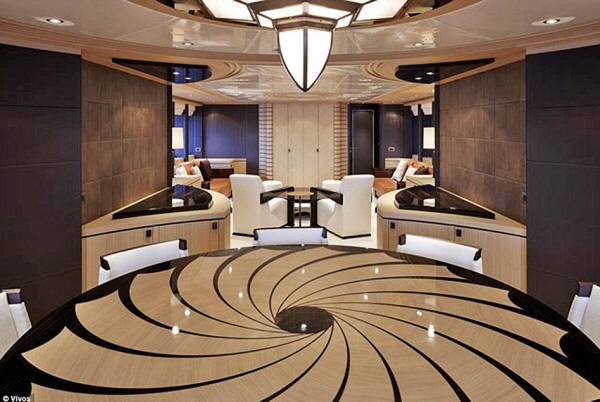
Swanky:
In the event of a disaster, families will fly
to
nearby airports before lockdown.
They will then be transferred to Vivos Europa One
by Vivos helicopters.
The company will provide protective equipment
needed to brave the outer world.
Above, another living quarters
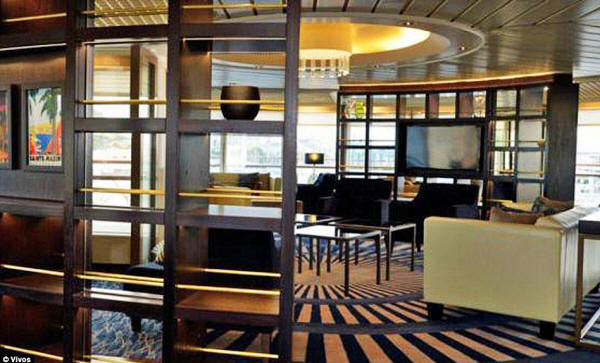
Impressive:
The bunker is among a network of underground-shelters
being built by Vivos, which is based in California.
Above, a bar
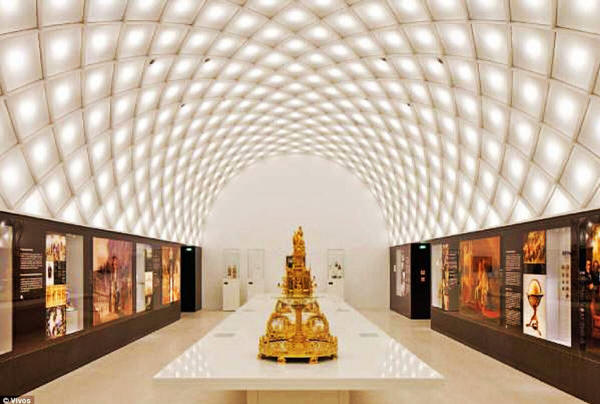
Exhibit hall:
Alongside its catastrophe-proof features,
the
bunker will include a collection
of
zoological species and an artifact archive
The firm's first
completed bunker is situated in Indiana.
Prices on
the company's website are listed as
$35,000 for adults and $25,000 for children.
All of the shelters are fully stocked with food and other resources,
and are designed to operate autonomously for six months to one year,
the firm says.
In total, Vivos aims to accommodate 6,000 people in its bunkers.
Potential families are screened - then approved or rejected - based
on their skills.
Vicino has previously said that he was 'inspired' by a powerful
'message' in the 1980s, telling him he needed to build a survival
shelter for thousands.
The businessman said he did not know where the message had come
from. In a statement, Vivos told Daily Mail Online:
'We are clearly
living in dangerous and changing times that the uninformed will
never understand until the threats are evident.
We cannot predict,
but we can prepare.'
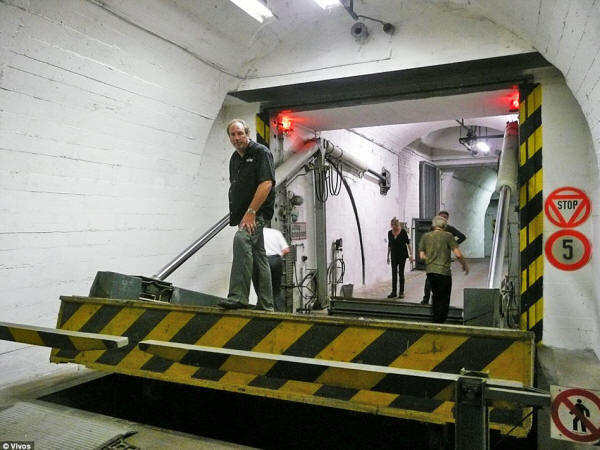
Ready for impact:
Vivos's first completed bunker is situated in Indiana.
Prices on the company's website are listed as $35,000 for adults
and $25,000 for children.
Above, Vivos CEO Robert Vicino stands on a blast-proof door
at the new bunker in central Germany
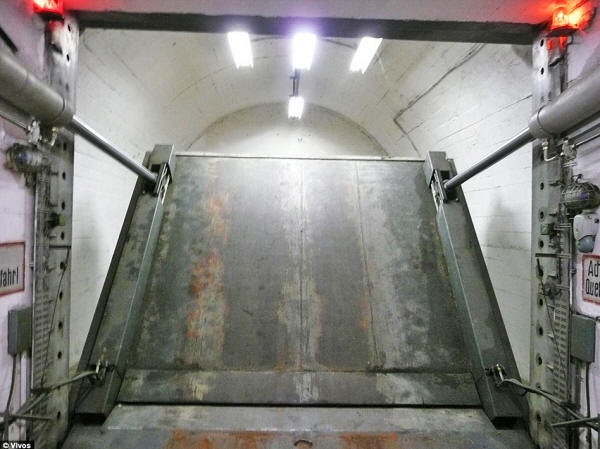
Thick steel:
All of the Vivos shelters are fully stocked with food,
and are designed to operate autonomously
for six months to one year
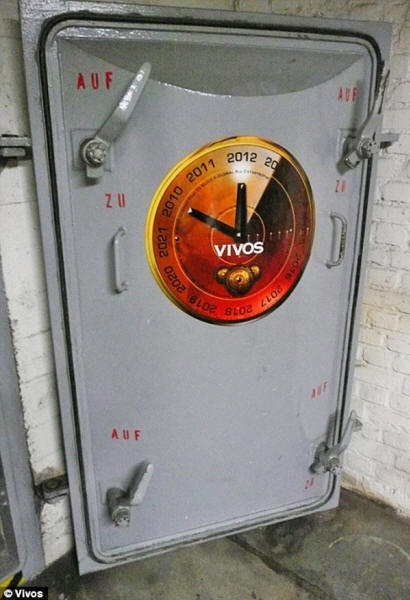 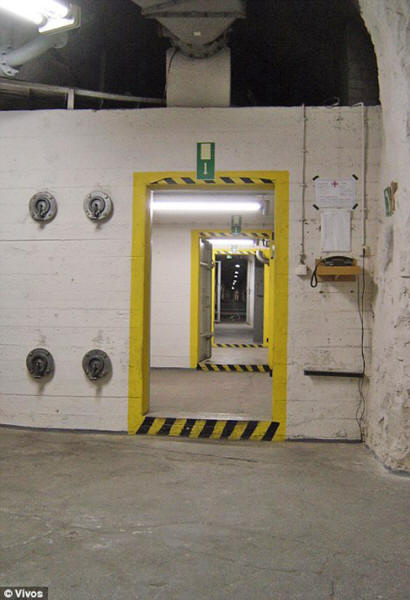
Locking residents in:
Vicino has previously said that he was 'inspired'
with a powerful 'message' in the 1980s telling him
that he needed to build a survival shelter.
The businessman said he did not know
where the message had come from.
Above, various blast doors
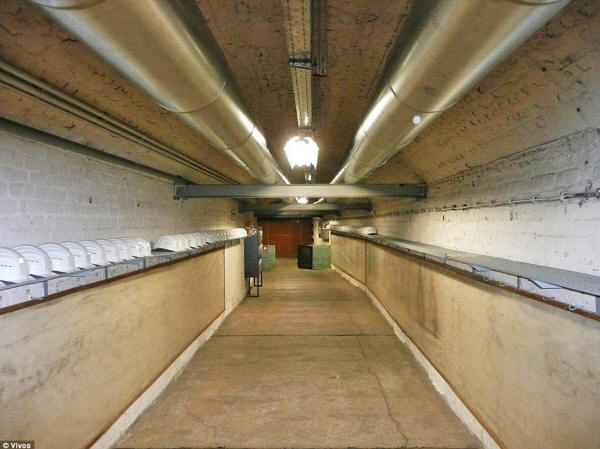
Work:
The personnel entry corridor inside the shelter
contains an array of white hard hats,
with steel pipes running across the ceiling
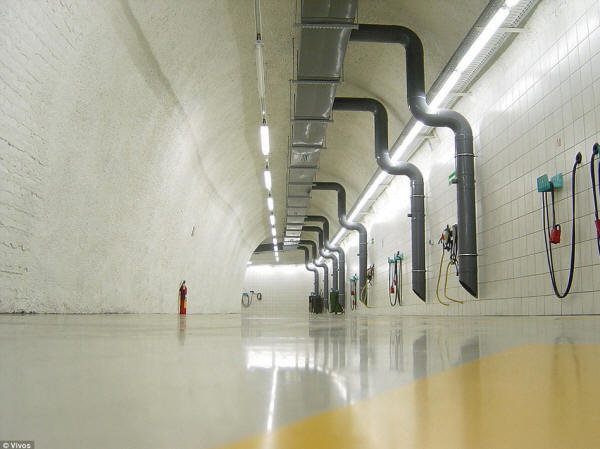
Providing treatment:
This photo depicts the hospital area at the shelter,
which is in 'turnkey operational condition'
and worth $1billion
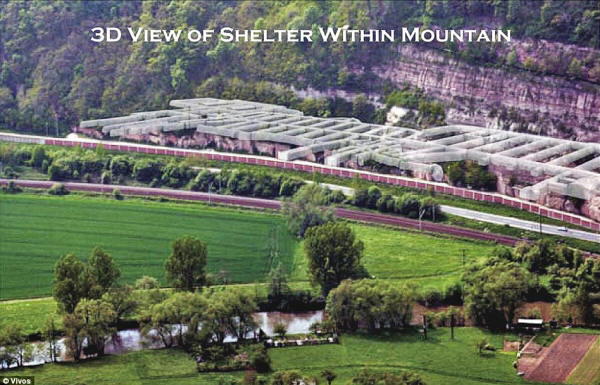
3D view:
In a statement, Vivos told Daily Mail Online:
'We are clearly living in dangerous and changing times
that the uninformed will never understand until the threats are
evident.
We cannot predict, but we can prepare.'
Above, a 3D view of the shelter in Rothenstein
More related information at "Why
Super-Rich Rush to Buy Nuclear-Proof Bunkers".
|
































